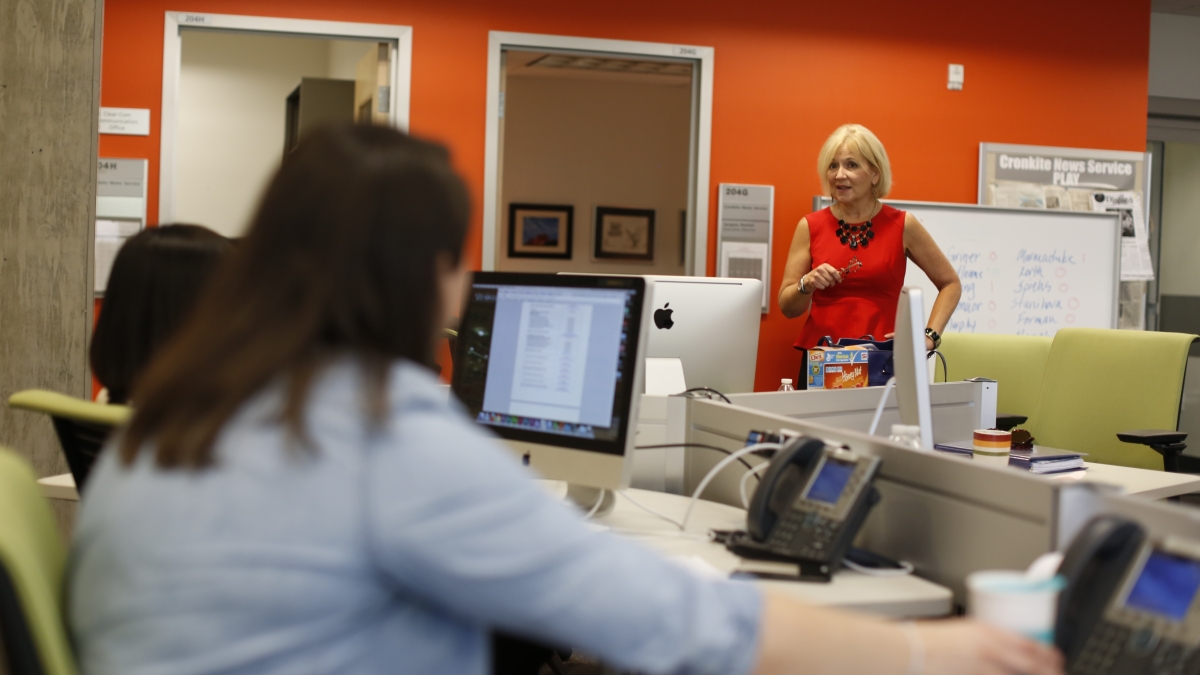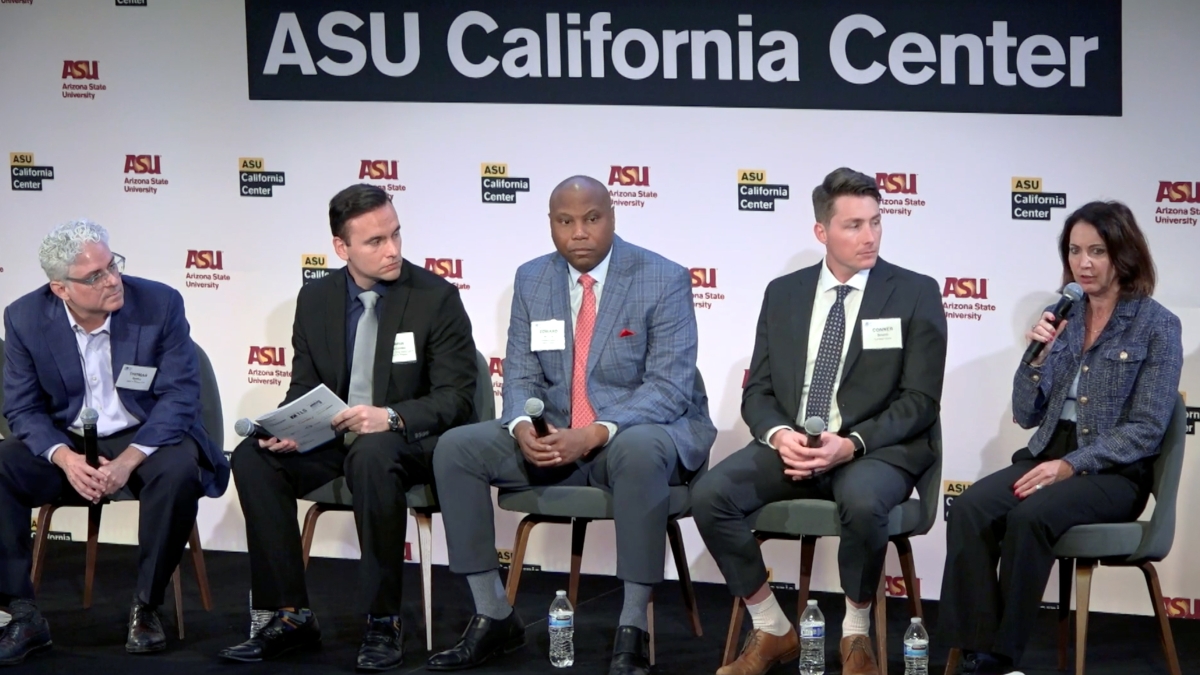Q&A: National award highlights excellence of Cronkite investigative journalism

Investigative reporting is essential to an informed public: It has the power to uncover exploitation, fraud and wasteful spending.
But even with the explosion of publishing platforms, media outlets and political experts in the internet age, watchdog journalism remains as challenging as ever.
Recognizing its importance, the Walter Cronkite School of Journalism and Mass Communication has made the practices of records searches, detailed research and in-depth data analysis an integral part of its curriculum.
Recently, the focus paid off when a News21 investigation into voter rights resulted in recognition from Editor and Publisher magazine. “Voting Wars: Rights, Power, Privilege,” an in-depth large-scale news package, picked up an Investigative Reporters and Editors award with one judge writing, “Students matched or outpaced professional publications to show erosions in voter rights.”
The "Voting Wars" investigation brought together 31 students from 18 universities who traveled to 31 states and interviewed hundreds of individuals. They also turned out more than a dozen stories, hundreds of photos and more than 30 videos. The series was featured in more than 80 media outlets, including NBC News, USA Today and The Washington Post.
Jacquee Petchel is the executive editor of the Carnegie-Knight News21 multimedia investigative reporting initiative, a digital news program headquartered at the Walter Cronkite School of Journalism and Mass Communication on ASU’s Downtown Phoenix campus.
She is a former investigative reporter, editor and producer who most recently served as senior editor for investigations and enterprise at the Houston Chronicle, and she was inducted into the Cronkite School’s Alumni Hall of Fame in 1997.
In addition to the recent voting rights package, Petchel has led students in national investigations focusing on food safety and on post-9/11 veterans and produced the half-hour documentary “Hooked: Tracking Heroin’s Hold on Arizona,” which reached more than 1 million Arizonans and won numerous prestigious journalism awards.
She spoke to ASU Now about how Cronkite has taken a national leadership role in preparing the next generation of investigative journalists, how it has changed and evolved over the years, and the role it will play in the future.
Question: Is it misperception that investigative journalism has seen a decline or has eroded over time?
Answer: I would argue the perception in this country is that investigative journalism is as vibrant and — more importantly — as necessary as it's ever been.
I can say this unequivocally because I just judged a national investigative journalism contest based at Harvard and reviewed stories that exposed egregious betrayals of public trust and, in many cases, saved lives.
Far from withering on the vine, investigative journalism instead is evolving with innovative storytelling and multimedia presentations that are more engaging than ever.
Q: You’ve led several investigative journalism packages at Cronkite. Give me some specific examples of how your packages have created change?
A: Here's a perfect example: The Cronkite-based News21 investigative reporting program, funded by the Knight Foundation and other donors committed to the very work I'm discussing here, just won a national Investigative Reporters and Editors Award for our 2016 investigation into voting rights.
It's one of the highest journalism honors in the country.
The judges noted that ASU students, as well as students from across the country who also participated in the investigation, “outpaced” professional reporters in several areas of our coverage.
Cronkite News also has been honored with the Alfred I. DuPont award, one of the highest professional broadcast awards in the country, for our "Hooked: Tracking Heroin's Hold on Arizona" documentary.
Q: How do you teach investigative journalism, which is often slower-paced, loaded with information and bigger picture, to a generation who grew up on BuzzFeed?
A: I believe that students at Cronkite are embraced by an environment that welcomes a new generation because we provide support for their ideas and innovation.
They represent a new future with their unending imagination and ability to reinvent how we continue to do important work.
We support their ideas in every way we can. That's the Cronkite mantra.
Q: Technology seems to be helpful to investigative journalism. Tell us how you use it in your packages and how it’s effective in storytelling?
A: Probably the most ever-evolving technology is the use of data analysis, which allows us to examine all manner of databases, particularly government data, and extract conclusions that hold public officials and others accountable. Add to that the importance of social media and all the analytics that go with it, you have a better-informed public and students with a sense of social responsibility.
Q: What do you see as the future of investigative journalism, or how will it continue to evolve?
A: Investigative journalism will always be what it's been for decades. Its critical evolution is dependent on reaching our audience in innovative ways while remaining true to compelling journalism.
Top photo: Jacquee Petchel, executive editor of the Carnegie-Knight News21 multimedia investigative reporting initiative, leads a group of investigative reporters on a news package inside the Cronkite School at the ASU Downtown Phoenix campus. Photo courtesy of Kaard Bombe
More Law, journalism and politics

TechTainment conference explores the crossroads of law, technology, entertainment
What protections do writers, actors, producers and others have from AI? Will changing laws around name, image and likeness (NIL) eliminate less lucrative college sports programs?And what does…

How to watch an election
Every election night, adrenaline pumps through newsrooms across the country as journalists take the pulse of democracy. We gathered three veteran reporters — each of them faculty at the Walter…
Law experts, students gather to celebrate ASU Indian Legal Program
Although she's achieved much in Washington, D.C., Mikaela Bledsoe Downes’ education is bringing her closer to her intended destination — returning home to the Winnebago tribe in Nebraska with her…